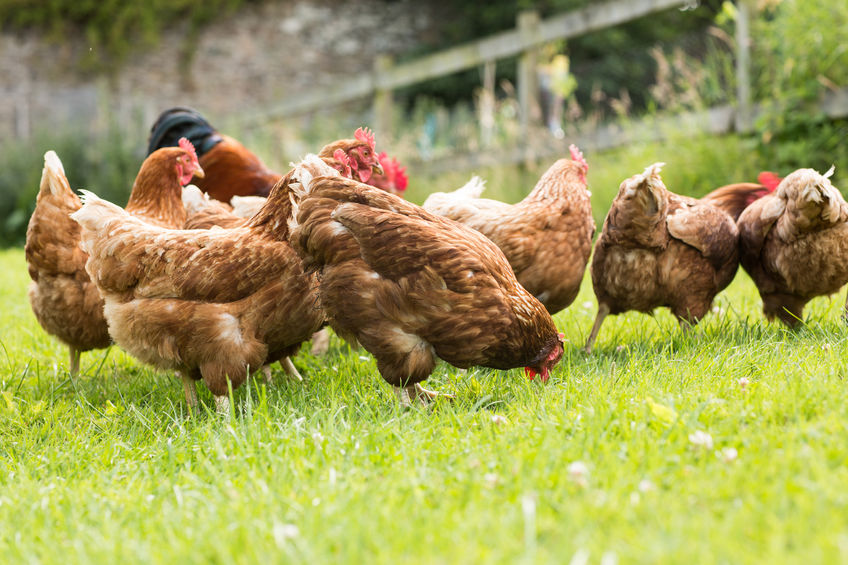
Specially bred wheat could help provide some of the key nutrients essential for healthier bones in poultry, researchers at Nottingham Trent University and Aarhus University in Denmark have found.
Researchers said wheat can be bred naturally to produce high levels of 'phytase' which the bird requires to grow a healthy skeleton.
The wheat was tested on poultry in feed trials carried out at Nottingham Trent University’s Poultry Research Unit.
The poultry industry has been very successful in improving bird productivity, with growth rates increasing threefold over the last 50 years.
Nutritionists have tackled this issue through supplements but they are very expensive.
Milestone
For the latest work, published in the journal Animal: An International Journal of Animal Bioscience, plant-breeding scientists from Aarhus University used their expertise to make it simple and efficient to breed wheat with naturally high levels of phytase.
Scientists in Nottingham Trent University’s poultry nutrition research team then designed and carried out a poultry nutrition trial to compare this new source of phytase to traditional poultry diet formulations.
The trial shows that inclusion of the high phytase wheat in the feed is a highly effective way to unlock the phosphorous in the diet for use by the animal.
"Aiming for high phytase activity in wheat grains has been a key research target for many years," said Dr Henrik Brinch-Pedersen, Group leader at Aarhus University's Department of Molecular Biology and Genetics.
He said: "Reaching it was a milestone, but seeing that it works well in animal feeding is extremely satisfactory.
"A particularly exciting additional implication of this work may actually be for humans.
"700 million people globally suffer anaemia partly caused by the high phytate content of their diet. Providing a variety of wheat that contains its own phytate-destruction enzyme could improve the population health of many nations."
Exciting innovation
Dr Emily Burton, Head of the Poultry Research Unit in Nottingham Trent University’s School of Animal, Rural and Environmental Sciences, added: "It has been exciting to explore a completely different way of providing meat chickens with the phosphorous needed for healthy bones.
"We will be looking to explore further the possibilities of wheat-derived phytase, as emerging research in this field shows the anti-nutritional effects of phytate in poultry extends far beyond locking away phosphorous.
Steve Wilson, Monogastric Nutritionist at the animal feed producers ForFarmers, said: "Wheat is the predominant ingredient used in poultry diets and over 50% of all the wheat grown in the EU is used in the manufacture of animal feeds.
"If the naturally occurring level of phytase in this major cereal can be increased then it can make a significant economic contribution to our aim to improve the efficiency and sustainability of future feed production."
Plant Bioscience Ltd (PBL, Norwich, UK) – an independent technology management company specialising in plant, food and microbial science – was also involved in the study and funded the work. PBL is now working with partners in the plant breeding and feed industry to bring this exciting innovation into use.
